Filter by
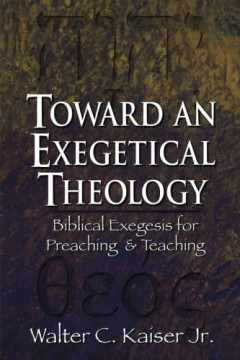
Toward an Exegetical Theology: Biblical Exegesis for Preaching and Teaching
Proposes a method of biblical interpretation consisting of contextual, syntactical, verbal, theological, and homiletical analysis.
- Edition
- -
- ISBN/ISSN
- 9780801021978
- Collation
- Softcover; 269 hlm.; 15.14 x 22.25 cm
- Series Title
- -
- Call Number
- 220.601
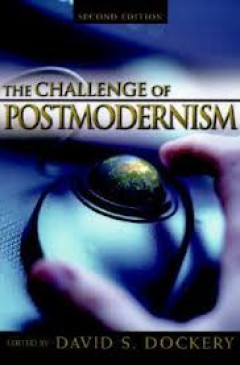
The Challenge of Postmodernism
Learn how to reach a new generation in a rapidly changing world with the unchanging gospel.
- Edition
- 2
- ISBN/ISSN
- 0801022746
- Collation
- Softcover; 224 hlm.; 15.2 x 22.8 cm
- Series Title
- -
- Call Number
- 230.046
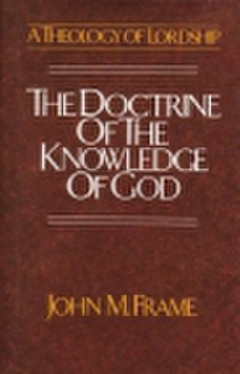
The Doctrine of the Knowledge of God
Frame explores our relationship with God as a knowing relationship. He writes, "We tend to forget how often in Scripture God performs His mighty acts so that men will 'know' that He is Lord." He thus examines our knowledge of God as it relates to our knowledge of ourselves and of the world in which we live. Reflecting his conviction that theology is the application of Scripture to life in all s…
- Edition
- -
- ISBN/ISSN
- 0875522629
- Collation
- Hardcover; 437 hlm.; 15.95 x 23.67 cm
- Series Title
- A Theology of Lordship
- Call Number
- 231.042
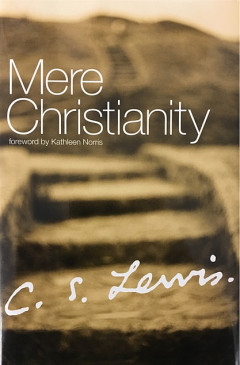
Mere Christianity
In 1943, when all hope was threatened by the inhumanity of war, C.S. Lewis was invited to give a series of BBC lectures addressing the central issues of modern life. More than half a century after the original lectures, they continue to retain their poignancy. First heard as informal radio broadcasts, the lectures were then published as three books and subsequently combined as Mere Christianity…
- Edition
- Fiftieth Anniversary Edition
- ISBN/ISSN
- 0007131860
- Collation
- Hardcover; 247 hlm.; 14.5 x 21.5 cm
- Series Title
- -
- Call Number
- 230
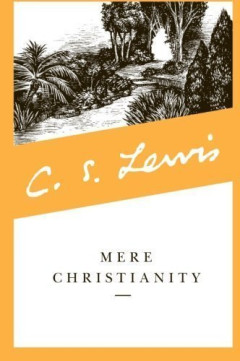
Mere Christianity
In 1943 Great Britain, when hope and the moral fabric of society were threatened by the relentless inhumanity of global war, an Oxford don was invited to give a series of radio lectures addressing the central issues of Christianity. Over seventy years after the original lectures, the topic retains it urgency. Expanded into book form, Mere Christianity never flinches as it sets out a rational ba…
- Edition
- -
- ISBN/ISSN
- 9780060652920
- Collation
- Softcover; 227 hlm.; 13.5 x 20 cm
- Series Title
- -
- Call Number
- 230
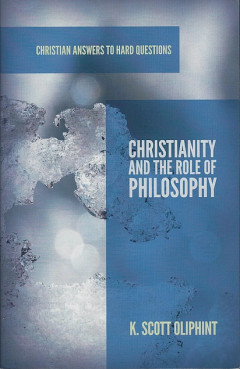
Christianity and the Role of Philosophy
A philosophy, as a worldview, must have an anchor if it is to be meaningfully discussed and assessed. If God exists, then philosophy must find its anchor by being subservient to theology. So says Dr. K. Scott Oliphint, who demonstrates that only by beginning with God and his Word can we engage in true philosophy.
- Edition
- -
- ISBN/ISSN
- 9781596386747
- Collation
- Softcover; 36 hlm.; 14 x 21.5 cm
- Series Title
- Christian Answers to Hard Questions
- Call Number
- 261.5
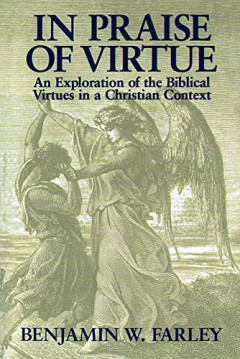
In Praise of Virtue
In this resourceful and illuminating exploration of the biblical virtues, Benjamin W. Farley examines both the Old and New Testament and applies their teachings on moral character to the Christian life today. In the process, Farley critically reviews the current philosophical and theological interest in virtue, engages the Aristotelia, Thomist, and modern views of virtue, incorporates and respo…
- Edition
- 1
- ISBN/ISSN
- 0-8028-0792-5
- Collation
- Soft Cover, 181 hlm, 15x22.5cm
- Series Title
- -
- Call Number
- 241.4

The Cambridge Companion to Friedrich Schleiermacher (Cambridge Companions to …
Known as the 'Father of modern theology' Friedrich Schleiermacher is without a doubt one of the most important theologians in the history of Christianity. Not only relevant to theology, he also made significant contributions in areas of philosophy such as hermeneutics, ethics, philosophy of religion and the study of Plato, and he was ahead of his time in espousing a kind of proto-feminism. Divi…
- Edition
- -
- ISBN/ISSN
- 9780521891370
- Collation
- Softcover, 348 hlm, 15x23cm
- Series Title
- -
- Call Number
- 193
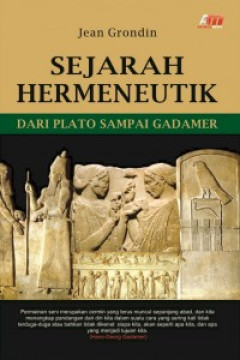
Sejarah Hermeneutik: Dari Plato Sampai Gadamer
Sejarah hermeneutik yang ada dalam buku ini adalah sejarah penulisan sumber-sumber penulisan hermeneutik beserta hiruk pikuknya di antara para tokoh pendiri dan pengembang hermeneutik itu sendiri. Dalam buku ini terdapat berbagai perdebatan dan kritikan yang bukan hanya dalam konteks bagaimana hermeneutika itu dibuat dan diciptakan, tapi bagaimana saling kritik mewarnai gaya penulisan dan bahka…
- Edition
- -
- ISBN/ISSN
- 979254416x
- Collation
- Softcover; 282 hlm; 14.5 x 20.5 cm
- Series Title
- -
- Call Number
- 121.68
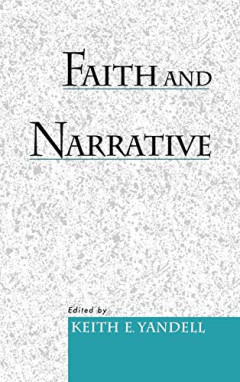
Faith and Narrative
From epic to limerick, novel to anecdote, literary narratives engage and entertain us. From autobiography and biography to accounts of familial generations, narratives define communities. Myths and histories loom large in religious traditions as well. Recently, the importance of narrative to ethics and religion has become a pervasive theme in several scholarly disciplines. In the essays present…
- Edition
- -
- ISBN/ISSN
- 9780195131451
- Collation
- Hardcover; 271 hlm.; 16 x 24 cm
- Series Title
- -
- Call Number
- 121.68
 Computer Science, Information & General Works
Computer Science, Information & General Works  Philosophy & Psychology
Philosophy & Psychology  Religion
Religion  Social Sciences
Social Sciences  Language
Language  Pure Science
Pure Science  Applied Sciences
Applied Sciences  Art & Recreation
Art & Recreation  Literature
Literature  History & Geography
History & Geography